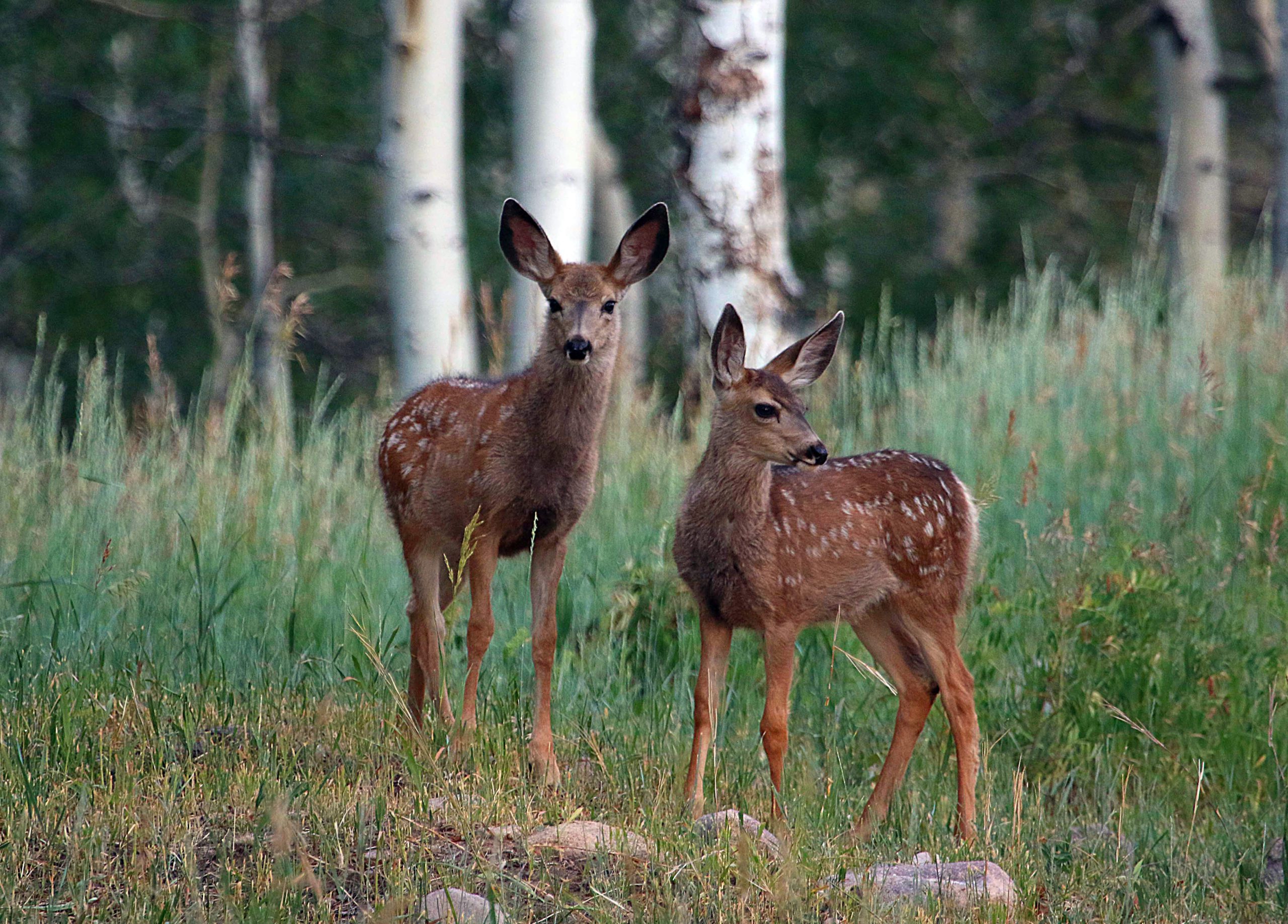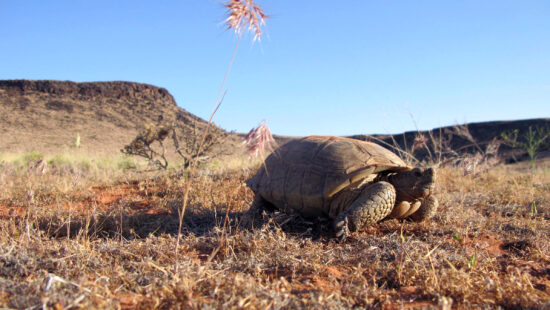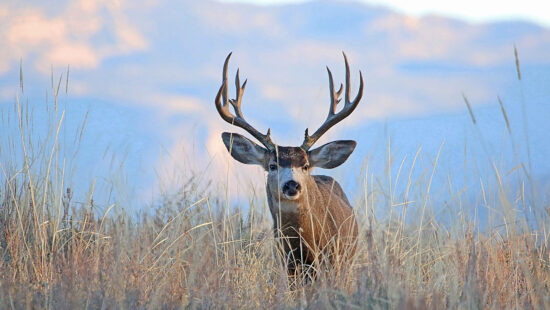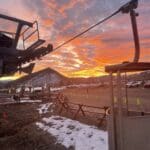Wildlife
DWR confirms first COVID-19 case in Utah mule deer
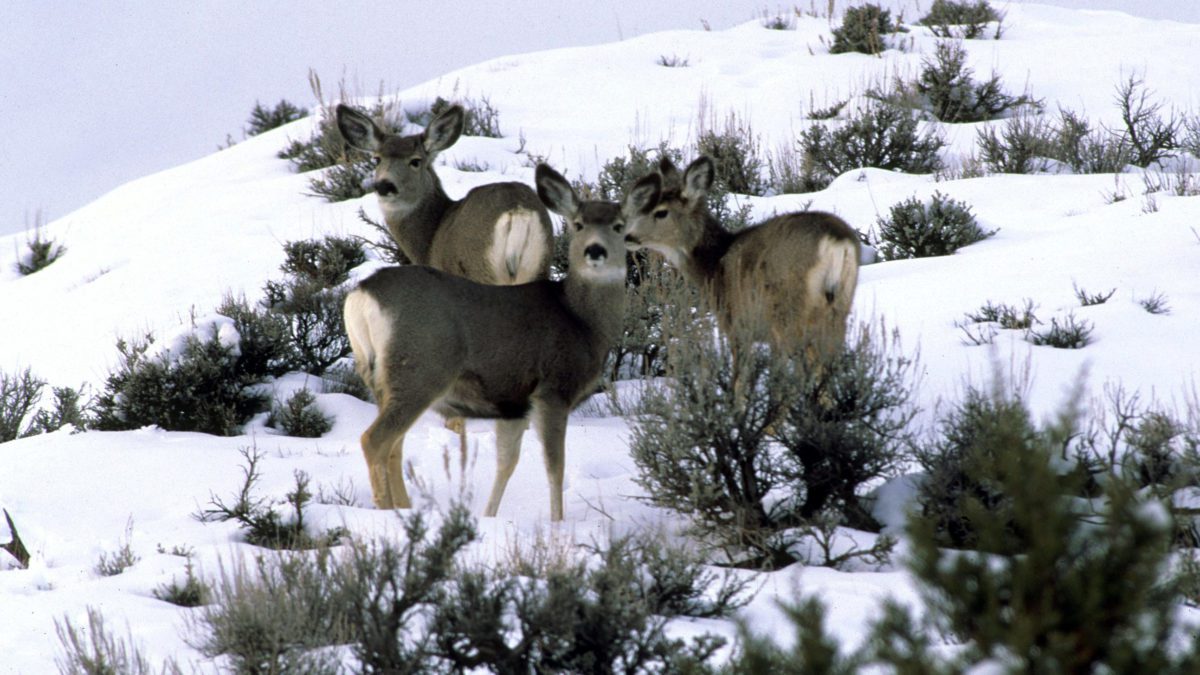
After conducting winter health assessments, the Utah Division of Wildlife Resources confirmed the first case of COVID-19 in a Utah mule deer. Photo: Utah Division of Wildlife Resources.
SALT LAKE CITY — After conducting winter health assessments, the Utah Division of Wildlife Resources (DWR) confirmed the first case of COVID-19 in a Utah mule deer.
The U.S. Department of Agriculture’s Animal and Plant Health Inspection Service (APHIS) has been collaborating on a research study to test various wildlife species for the presence of SARS-CoV-2 (COVID-19). From November to December of 2021, samples were taken from roughly 280 deer statewide and were sent to two USDA labs in other states for testing.
On March 22, the APHIS’ National Veterinary Services Lab in Ames, Iowa confirmed a case of the SARS-CoV-2 delta variant in one of the samples submitted from a female mule deer in Morgan County. While only one deer tested positive for the virus from the nasal samples, several other Utah deer possessed the antibodies in their blood samples, leading biologists to believe that the virus had been in the deer population prior to the capture.
“While it is confirmed that mule deer are susceptible to this virus, the deer that we took samples from did not show any clinical signs of the illness, and there isn’t any evidence that it is killing mule deer,” DWR State Veterinarian Ginger Stout said. “There is also no evidence that animals, including mule deer, are playing a significant role in spreading SARS-CoV-2 to people, and the available research suggests that the likelihood of getting COVID-19 from an animal is quite low.”
While it is unclear how the mule deer was exposed to the delta variant of COVID-19, it remains a possibility that the deer may have been exposed through people, other deer or another animal species.
Despite there being no evidence that people can get COVID-19 by eating meat from an infected animal, the DWR encourages hunters to practice the following techniques in order to maintain good food hygiene when processing harvested wildlife:
- Don’t allow contact between wildlife and domestic animals, including pets and hunting dogs.
- Do not harvest animals that appear sick or are found already dead.
- Keep game meat clean, and cool the meat down as soon as possible after harvesting the animal.
- Avoid cutting through the animal’s backbone and spinal tissues, and do not eat the brains of wildlife.
- When handling and cleaning game meat, wear rubber or disposable gloves. Don’t eat, drink or smoke while handling the meat.
- When you are finished handling and cleaning the meat, wash your hands thoroughly with soap and water.
The U.S. Department of Agriculture’s APHIS will be conducting further research on the potential effects of SARS-CoV-2 in free-ranging mule deer in Utah and other Western states.















